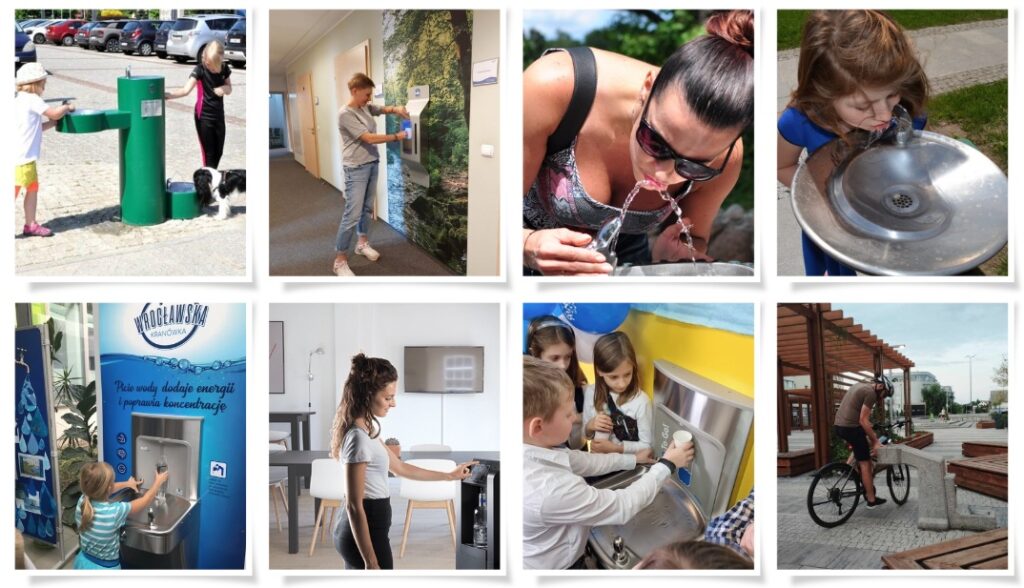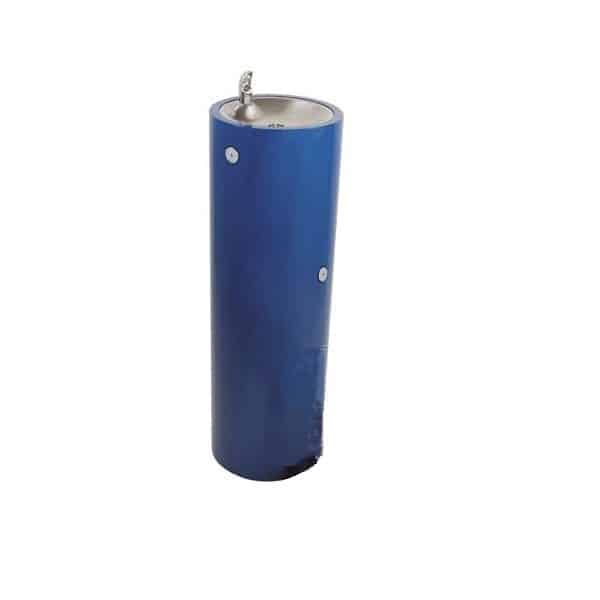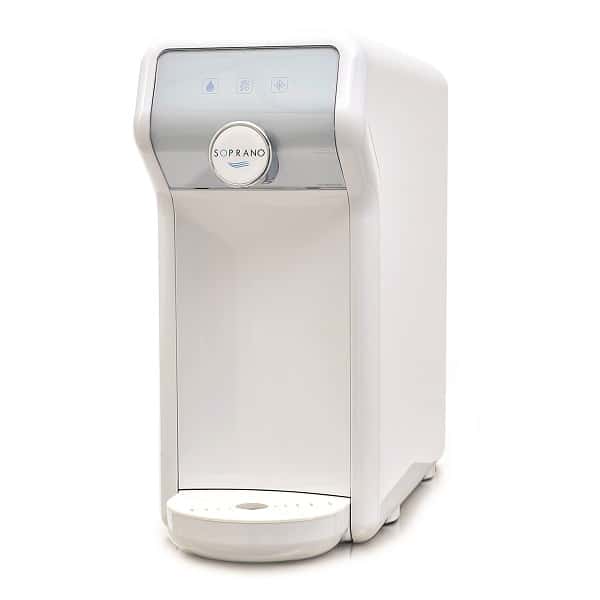Academy
Spa brands
In this section you will find a range of practical information related to our solutions. In the articles, we share our experience, discuss implementation steps and highlight good practices. It is a reliable source of information and advice on the provision of drinking water in public spaces, the legal regulations in this area, the benefits of installing drinking water dispensers and the technological aspects in this field.
We look forward to reading!
How much water should we drink depending on our age, gender, height and lifestyle?

Water is an essential component of our body - it is responsible for the proper functioning of all systems, supports digestion, regulates body temperature, removes toxins and improves concentration. Although we often hear that 'you need to drink 2 litres of water a day', the actual need for fluids is more complex and depends on many factors such as age, gender, weight, height, level of physical activity or working conditions.
Hydration of the child versus hydration of the adult
In adults, the average water requirement is 2 to 2.5 litres a day for women and 2.5 to 3 litres for men. However, these values can increase significantly if a person leads an active lifestyle or works physically, especially in high temperatures. Children, although smaller, also need regular hydration - toddlers aged 1-3 years should take in around 1.3 litres of water a day, and school-age children 1.6 to 2.5 litres, depending on gender and age.
Does body weight matter?
One way of accurately determining the amount of water needed is the body weight conversion factor: it is assumed that you should drink between 30 and 40 ml of water for each kilogram of body weight. For a person weighing 70 kg, this means between 2.1 and 2.8 litres a day - a good starting point that you should adjust according to your needs.
Adequate hydration and type of work
The type of work carried out also makes a huge difference to hydration levels. People who work physically, especially outdoors - on construction sites, in agriculture or in logistics - may need up to 4 litres of water a day to replenish losses due to sweat and high ambient temperatures. Even office workers should not underestimate the need to drink regularly - air conditioning and long hours in front of a computer can lead to dehydration, although we do not always feel it immediately.
It is also worth mentioning factors that increase the need for water. These include, but are not limited to: intense physical exertion, high temperatures, feverish illnesses, and diets high in protein, fibre or salt. Coffee, tea and alcohol are also diuretics and can flush water out of the body, so it is a good idea to drink an extra glass of water in their company.

The effects of dehydration - what happens when we drink too little?
Too little water intake can take its toll on health and daily functioning very quickly. Even minor dehydrationof 1-2% body weight, can cause symptoms such as fatigue, loss of concentration, headaches, dizziness and irritability. The body, deprived of adequate hydration, begins to function less well and metabolic processes are slowed down.
One of the first signs of dehydration is darker colour of urine and a feeling of dry mouth. As dehydration progresses, more troublesome symptoms appear - dry skin, decreased tissue elasticity, reduced blood pressure, a feeling of weakness and, in extreme cases, even heart rhythm disturbances. Long-term fluid deficiencies can lead to serious health consequences such as kidney stones, constipation and even cognitive impairment.
Dehydration is particularly dangerous for the elderly and children. In seniors, the sensation of thirst is often impaired, so that they do not reach for water often enough. Children, on the other hand, lose water more quickly and are more prone to water shortages, especially during hot weather, physical exertion or illness.
It is worth remembering that desire is late signalThe body already starts to feel the lack of water. Therefore, we should not wait to drink until we are really thirsty - it is better to drink regularly, in small sips, throughout the day.
Getting into the habit of constant hydration can significantly improve our mood, performance at work and overall functioning. It is one of the simplest steps towards a healthier lifestyle.
A good indicator of hydration levels is the colour of the urine - light straw-coloured means that everything is normal. If, on the other hand, the urine becomes dark, this is a sign that the body needs more fluids. Other symptoms of dehydration include a dry mouth, tiredness, problems concentrating or a headache.
In fact, there is no one-size-fits-all amount of water we should drink. The key is to watch your body, your lifestyle and adjust your fluid intake according to your individual needs. It is also a good idea to ensure that you have easy access to clean water - both at home and in your workplace or study area. Using water dispensers, street springs and reusable bottles is a simple way to make hydration a healthy daily habit.





